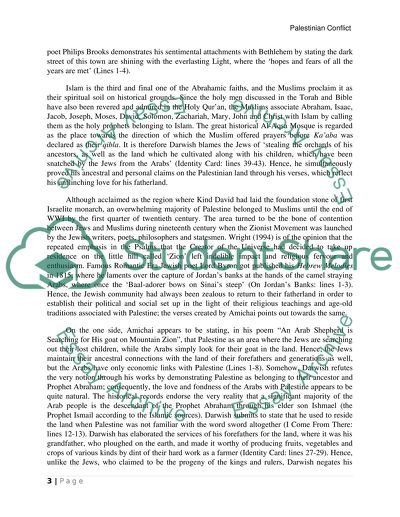Cite this document
(“Palestinian conflict Essay Example | Topics and Well Written Essays - 1500 words”, n.d.)
Palestinian conflict Essay Example | Topics and Well Written Essays - 1500 words. Retrieved from https://studentshare.org/literature/1599079-palestinian-conflict
Palestinian conflict Essay Example | Topics and Well Written Essays - 1500 words. Retrieved from https://studentshare.org/literature/1599079-palestinian-conflict
(Palestinian Conflict Essay Example | Topics and Well Written Essays - 1500 Words)
Palestinian Conflict Essay Example | Topics and Well Written Essays - 1500 Words. https://studentshare.org/literature/1599079-palestinian-conflict.
Palestinian Conflict Essay Example | Topics and Well Written Essays - 1500 Words. https://studentshare.org/literature/1599079-palestinian-conflict.
“Palestinian Conflict Essay Example | Topics and Well Written Essays - 1500 Words”, n.d. https://studentshare.org/literature/1599079-palestinian-conflict.


